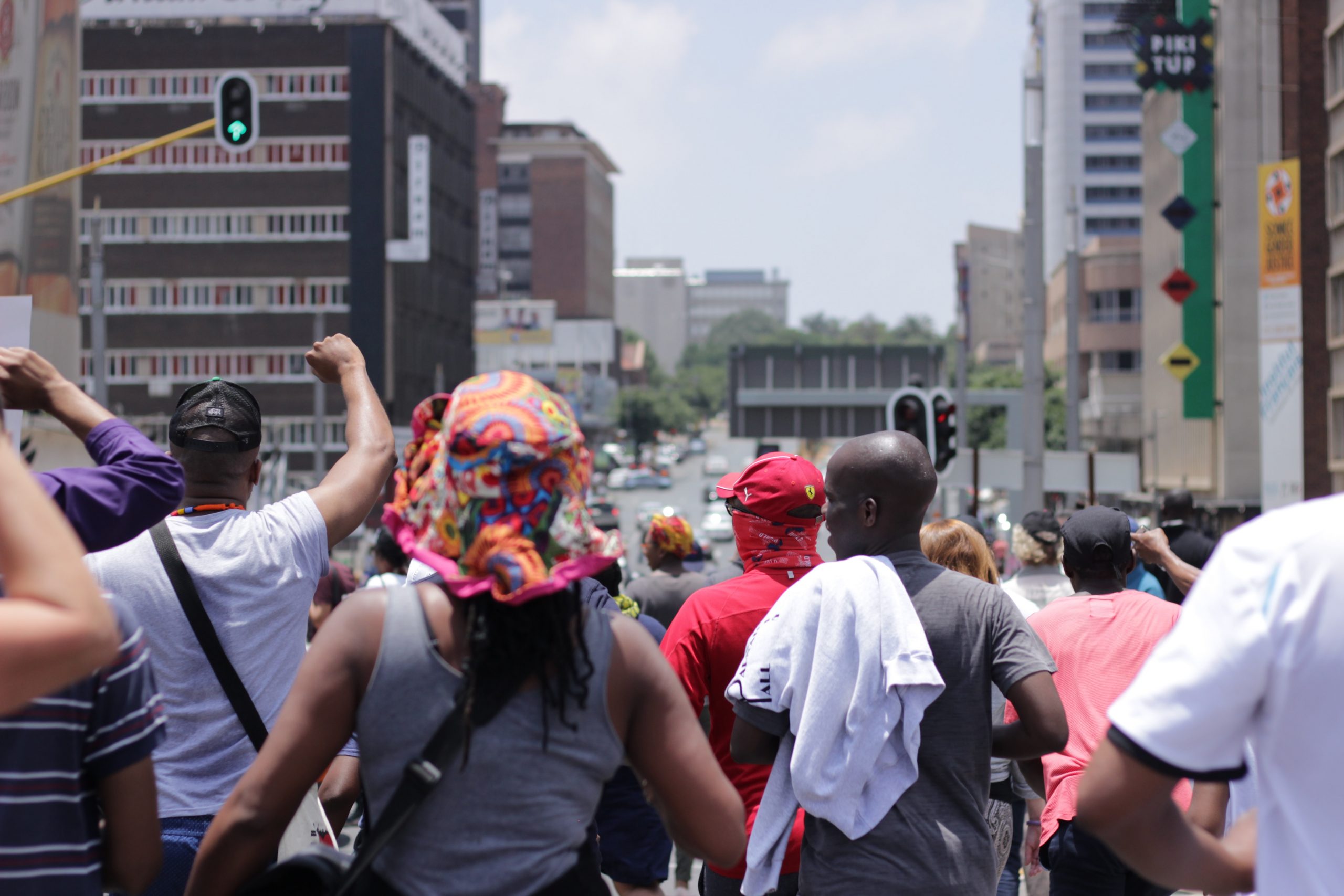Despite the huge problems of the last few months and South Africa’s inherent vulnerabilities, the country has so far been spared an Arab Spring-type popular uprising. Covid-19, economic decline and the strife within the ruling party have not led to the kind of mass protests that North Africa saw a decade ago.
This is partly due to four stabilizing factors: the deal struck between white business and the black elite after 1994; the deal among the new political elites in the ANC; the promise of upward mobility and a commitment to reduce extreme poverty.
These factors are highlighted in a report entitled South Africa: when strong institutions and massive inequalities collide by authors Brian Levy, Alan Hirsch, Vinothan Naidoo and Musa Nxele.
Of the four issues, the last two are going to be more and more difficult to guarantee following Covid-19, says economist Simon Freemantle.
Freemantle, senior political economist at Standard Bank, was speaking at a closed webinar organized at the end of last month by the In Transformation Initiative, Democracy Works, the Hanns Seidel Foundation, the Kgalema Motlanthe Foundation and the Gordon Institute for Business Science.
The remarks are published with his permission and those of the other speakers. ‘The question is how are we going to ensure a credible promise of upward mobility when there is no money to pay higher salaries in the public sector?’ asked Freemantle.
At this stage, there is no plan to cut social grants to the 18 million South African recipients since that could have a ‘catastrophic impact’. Yet there are also no real plans for a basic income grant to eradicate dire poverty – something many policy analysts have been calling for.
Economists and political analysts on the webinar largely agreed that the apartheid past is responsible for much of the crisis of today. Structural inequality persists despite a growing black middle class.
Who is to blame for not rectifying the situation since 1994 is, however, a question of much debate.
Some say the fault is primarily that of the ANC government that didn’t follow the line of uplifting ‘its own people’ as the Afrikaners did when they came to power in the 1940’s or the British before them.
The elite, both the black ruling elite and the white private sector, are in fact today acting as gatekeepers to prevent upward mobility of the majority, said one of the speakers.
Columnist Oscar van Heerden however says ‘it’s a flawed argument to say that the English and Afrikaners looked after their own and black people didn’t, because in 1994 there was nothing left of the pie to distribute’. He says much of the blame should be on the shoulders of the private sector that made sure there is a smooth transition in 1994 but then ‘siphoned off the money’.
What is needed now is a new social compact to address apartheid’s spatial inequalities, to break the inertia on land issues, freeze the pending dismissal of thousands of public sector workers that are in institutions such as the SANDF [the South African National Defense Force] and Eskom and ensure a basic income grant, he says.
Meanwhile political analyst Somadoda Fikeni says the ‘original sin’ was the ‘demobilisation’ of the citizenry every time there were mass movements and solutions offered such as those seen in Kliptown when the Freedom Charter was adopted or the MDM [Mass Democratic Movement] in the 1980’s. Civil society actors and others forged change with the understanding that once it came to power government will provide for them, but then they left citizens behind.
Today, social mobility is only possible through politics, even when it comes to business, he says.
Fikeni believes that leadership is needed in government, civil society and business to create a new vision.
Other views at the webinar included a suggestion to ‘reduce the populism around strategies to uplift the poor’, while at the same time putting in place measures to reduce extreme poverty such as job-guarantee schemes. This could be funded through a clampdown on tax evasion and taxation of the super-rich in
the country.
Reducing poverty is a moral and political question, said one speaker.
It was suggested that any strategies going forward should also be based on a people-centred approach rather than looking at economic figures and how to fix them.
Former president Kgalema Motlanthe added that while growth is an important imperative in any stable economy, it is well known that the quality of growth matters in order to reduce inequality. South Africa could knock on the door of Germany to learn lessons of how to ensure that a new social compact leads to
reducing unemployment. After World War II there were measures put in place to ensure greater job creation.
‘We need job-creators instead of job-seekers,’ he said.
Convener Nick Binedell closed by saying there is clearly a realization that something drastically should be done to reform the economy and these debates are helpful to unpack some of the views by top analysts. ‘Zuma and Covid-19 has forced us to look at the same screen,’ said Binedell.

